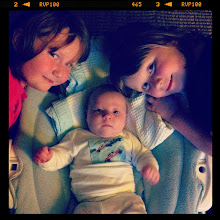Prior to embarking upon this course of study I feel that my personal use of media was quite passive and certainly my understanding of the production, distribution and consumption of media lacked depth and the critical understanding needed to fully engage with and manipulate media for my own purposes. Whilst I was fairly active in the pursuit of information, making use of a variety of media channels for my information consumption and entertainment purposes, I did not possess the critical skills to analyse the processes associated with media production and consumption. My media literacy skills needed sharpening.
What initially broadened my media horizons was the work of Henry Jenkins, in particular his thoughts on participatory culture and media convergence. This introduced me to the idea of a reciprocal flow of media and the power that the consumer has to shape media content, both in terms of manipulating and controlling the media that we consume and also assuming the role of producer and creating and remediating existing media for our own purposes. Participatory culture develops avenues for expression and active involvement in the media. New media technologies and the growing sophistication of the audience are facilitating a reshaping of the media landscape, allowing us to develop multiple channels of media and assume various roles in the process. Ultimately this has led to a blurring of the traditional roles of producer and consumer, introducing the concept of prosumerism. Prosumerism has been a fascinating concept to explore and I am particularly interested in the influence that Web 2.0 associated technologies have upon the production and consumption of media, arming the audience with the necessary tools to create their own media experiences or re-interpret those before them. This is of course an idea that was explored in some depth through the remediation task of assignment two.
The remediation task was by far my greatest learning experience of this unit. Prior to this I was unfamiliar with the concept of remediation and certainly didn’t possess the skills to critically analyse a media text with a view to exploring textual production. This process allowed me to question and explore my role as a media producer. Through this task I have gained insight into the process of adaptation and how this may alter a text’s purpose and reception. I have learnt that reception is difficult to gauge, being dependent upon a wide range of factors and subject to multiple readings. These were valuable insights gained throughout the remediation process.
In support of this task it was valuable to place my own remediation against the backdrop of readings for this unit including the process of creating mash-ups that was discussed by Em McEvan. Mash-ups are an excellent example of harnessing the Web 2.0 philosophies of enhanced creativity and collaboration to produce your own product. Colman and Dyer-Witheford’s discussion of video game culture and associated production and adaptation of computer games that occurs through modding and machinima was also particularly relevant. Both modding and machinima were creative media processes that I was relatively unfamiliar with prior to this unit. Both demonstrate participatory media culture in action and highlight how the sophisticated consumer explores the roles of production and distribution.
Ultimately the most beneficial aspect of this unit was developing an interest in the processes that influence media production and consumption and developing my own media literacy. I understand that we exist in a culture in which media underpins our everyday lives and that it is essential that we develop media literacy to empower ourselves in the face of dominant media culture. An understanding of media processes equips us to filter media, process it, manipulate it, remediate it and actively engage with it and this ultimately enables me to be more engaged with the media culture that I exist within.
Thursday, October 29, 2009
Subscribe to:
Post Comments (Atom)

No comments:
Post a Comment